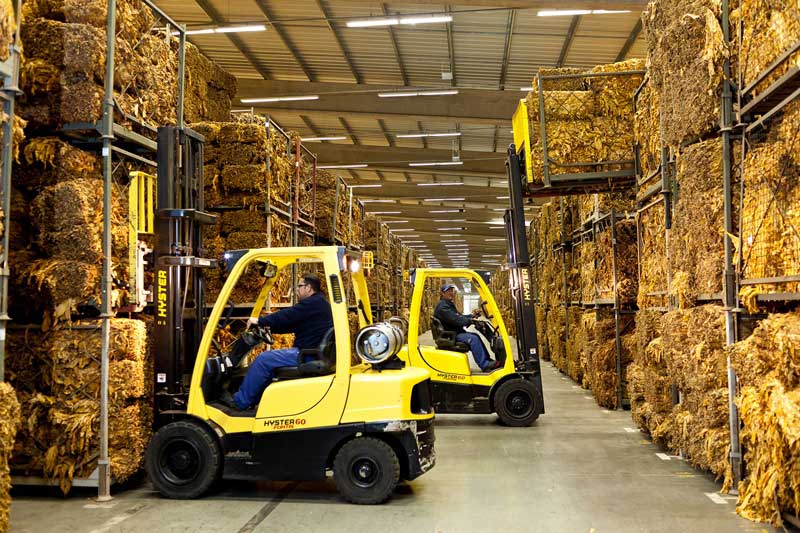Alliance One International’s volume sales during the nine months to the end of December, at 251.6 million kg, were increased by 3.6 percent on those of the nine months to the end of December 2015 because of prior crop inventory sales and the timing of shipments in North America and Africa.
But the company reported yesterday that sales had decreased by 5.7 percent to $1,105.1 million because of a product mix that had included an increased percentage of by-products rather than lamina, the El Niño weather impact of smaller crops in Brazil, the US and Tanzania, and the impact of the stronger US dollar.
Gross profit had decreased by 2.3 percent to $149.5 million due to weather related smaller crops in certain origins and differences in product mix.
But gross profit as a percentage of sales had improved to 13.5 percent from 13.1 percent.
Meanwhile, volume sales during Alliance’s third quarter to the end of December, at 101.6 million kg, were down by 0.7 percent on those of the third quarter to the end of December 2015 because unhelpful weather led to smaller crops in the US and Tanzania.
Sales had decreased by 7.5 percent to $454.5 million driven by a product mix with an increased percentage of by-products rather than lamina, the El Niño weather impact of smaller crops in the US and Tanzania, and the impact of the stronger US dollar.
Gross profit had decreased by 5.1 percent to $65.2 million due to weather related smaller crops in certain origins and differences in product mix, while gross profit as a percentage of sales had improved to 14.3 percent from 14.0 percent, driven by differences in product mix and favorable currency impacts.
Operating income had been unchanged at $38.7 million, while operating income as a percentage of sales had risen to 8.5 percent from 7.9 percent.
“While it is still early, as we look to next fiscal year, La Niña weather patterns that support better global growing conditions are present and should support crop size increases in a number of key markets,” said Pieter Sikkel, CEO and president, in presenting the results. “As such, initial reports indicate larger 2017 crops that we have begun to purchase in Brazil and will start to purchase in Africa during the quarter ending March 31, 2017, which are planned to be sold during our fiscal year ending March 31, 2018.
“The 2016 Brazilian Virginia flue-crop was abnormally low at approximately 410 million kilos versus 570 in the prior year. The 2017 crop is anticipated to be approximately 50 percent larger at 600 million kilos and current quality appears to be good and in line with expectations.
“We are expecting similar positive crop size increases in other key markets.”

